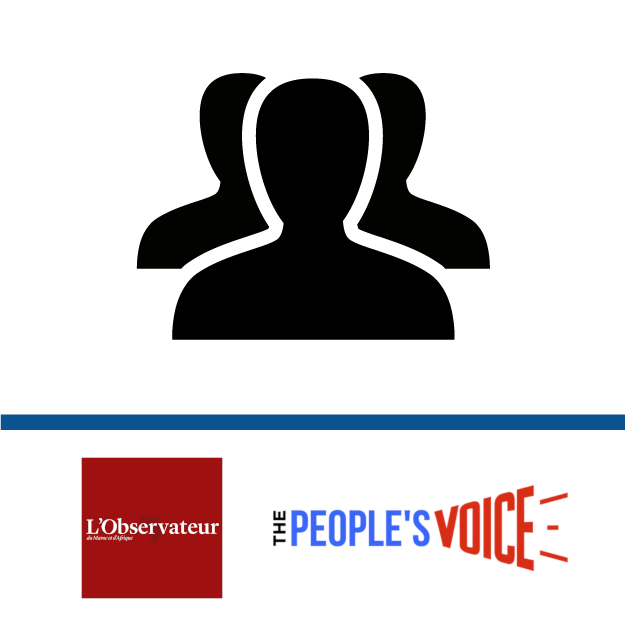

FULL CLAIM: “WHO scientist faces death penalty” in India for advising against using ivermectin to treat COVID-19
REVIEW
In June 2024, Instagram posts appeared claiming that WHO scientist Soumya Swaminathan faces the death penalty in India for advising against using ivermectin for COVID-19 (see examples here and here). Swaminathan is a pediatrician and researcher who served as the World Health Organization’s chief scientist from 2019 to 2022.
This claim isn’t new. As these fact-checks by ColombiaCheck and La Silla Vacia attest to, the claim was already propagated in Spanish on social media platforms in June 2021. Indeed, it’s just one of the many examples of legal threats and threats of violence and death against public health officials and healthcare workers that proliferated during the COVID-19 pandemic.
Ivermectin is a drug used to treat parasitic infections in humans and animals. The discovery of ivermectin’s antiparasitic activity won two scientists the Nobel Prize in Physiology or Medicine in 2015.
It was widely promoted as a COVID-19 treatment during pandemic, based on early studies that produced promising results. However, several of the studies that suggested it was beneficial were found to contain signs of potential fraud; a few were later retracted or withdrawn. Large-scale clinical trials found that ivermectin produced little to no benefit in COVID-19 patients[1-4]. Nevertheless, misinformation about ivermectin’s effectiveness against COVID-19 persists. Science Feedback tackled various iterations of such claims here, here, and here.
The claim’s recent revival through these Instagram posts was mediated by a screenshot of the headline of a 2021 article by French-language publication L’Observateur du Maroc et d’Afrique, translated to English. An article published on 13 June 2024 by the website The People’s Voice (formerly Newspunch), known for propagating false information, also repeated the claim.
However, as earlier fact-checks reported, this claim is inaccurate and stems from a distorted interpretation of a legal notice by a Mumbai-based group named the Indian Bar Association. The notice, which was sent in May 2021, was in response to Swaminathan’s public statements, including this now-deleted tweet, explaining that there was no evidence to support using ivermectin to treat COVID-19 except in clinical trials.
In the notice, the group alleged Swaminathan was running a “disinformation campaign” to “underplay the effectiveness of ivermectin” at treating COVID-19. It also accused her of committing crimes that were punishable by the death penalty.
Furthermore, the group claimed that ivermectin is safe and effective for preventing and treating COVID-19. And to support this claim, it cited the Front Line COVID-19 Critical Care Alliance (FLCCC) and the British Ivermectin Recommendation Development (BIRD). Both groups promote ivermectin as an effective COVID-19 treatment despite the lack of evidence to support this use.
The claim carries the overall implication that Swaminathan was criminally charged by the Indian Bar Association. However, this is misleading. Firstly, sending a legal notice isn’t the same as filing charges. And we were unable to find evidence indicating that the group had actually filed charges against Swaminathan.
Secondly, despite the impression that its name gives, the Indian Bar Association is a private voluntary organization of lawyers that has no official or regulatory authority. Instead, it is the Bar Council of India that serves as India’s statutory body for regulating legal practice and legal education.
While India’s initial guidance for treating mild COVID-19 did include ivermectin—albeit with the caveat of a “low certainty of evidence”—the Indian Council of Medical Research revised that guidance in September 2021, dropping ivermectin after studies showed that the drug had little to no effect on COVID-19. This is in line with evidence-based guidance provided by the WHO and the European Medicines Agency, as well as professional scientific groups like the Infectious Diseases Society of America.
In summary, the claim that former WHO scientist Soumya Swaminathan faces the death penalty in India for advising against ivermectin as a COVID-19 treatment is baseless. It originates from a legal notice issued by a private association of lawyers that itself cited flawed sources to support its promotion of ivermectin as a COVID-19 treatment. Reliable clinical studies have found that ivermectin provides little to no benefit for COVID-19.
REFERENCES
- 1 – Lim et al. (2022) Efficacy of Ivermectin Treatment on Disease Progression Among Adults With Mild to Moderate COVID-19 and Comorbidities: The I-TECH Randomized Clinical Trial. JAMA Internal Medicine.
- 2 – Reis et al. (2022) Effect of Early Treatment with Ivermectin among Patients with Covid-19. New England Journal of Medicine.
- 3 – Naggie et al. (2022) Effect of Ivermectin vs Placebo on Time to Sustained Recovery in Outpatients With Mild to Moderate COVID-19: A Randomized Clinical Trial. JAMA.
- 4 – Hayward et al. (2024) Ivermectin for COVID-19 in adults in the community (PRINCIPLE): an open, randomised, controlled, adaptive platform trial of short- and longer-term outcomes. Journal of Infection.


